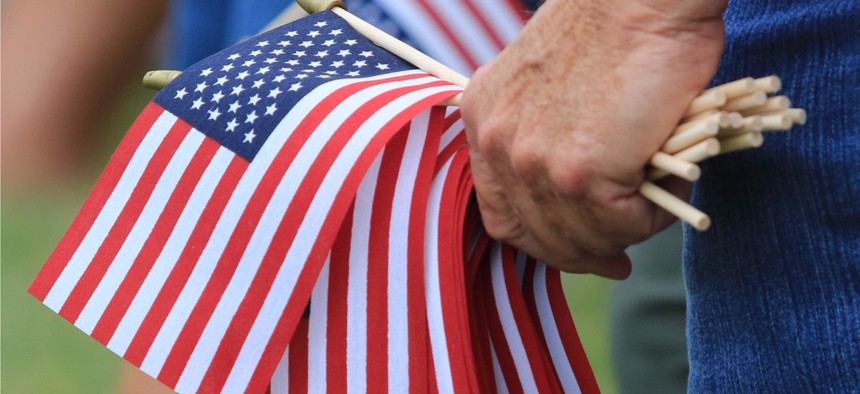
robertindiana/Shutterstock.com
Americans Just Experienced Their Biggest Spike in Stress in a Decade
Two-thirds of Americans—including a majority of both Democrats and Republicans—say they are stressed about the future of the country.
Americans are seriously stressed out.
After a bruising election that saw Donald Trump take the reigns of a divided nation, two-thirds of Americans—including a majority of both Democrats and Republicans—say they are stressed about the future of the country, according to a recent survey (pdf) released by the American Psychological Association (APA). Some 57% of the 1,019 respondents pointed to the current political climate as a very or somewhat significant source of stress, and nearly 49% say the same about the outcome of the election.
Unsurprisingly, Democrats were far more stressed about Trump’s election; 72% Democrats named the result of the 2016 presidential election as a significant source of stress, compared with just 26% of Republicans. But a majority of both Republicans (59%) and Democrats (76%) said the future of the country was a significant source of stress for them. Respondents were also stressed about terrorism, police violence toward minorities, and personal safety.
“When you’re asking about the future of the nation, my concerns about the future of the nation could be quite different than yours,” said Vaile Wright, a psychologist and member of the APA team that conducted the survey.
Love him or loathe him, Trump is undeniably an unpredictable figure. Unpredictability causes uncertainty, Wright said, and uncertainty causes stress.
“That desperate need to reduce our uncertainty drives our stress because we engage in activities that don’t help,” she said. Obsessively checking news and social media feeds fall into this category.
The recent poll, conducted between Trump’s election and his inauguration, is a follow-up to APA’s annual Stress in America survey, conducted every August since 2007. The APA decided to add questions about the election to last August’s survey as so many of its members were reporting election-related stress. The August poll showed more than half of 3,511 respondents were stressed about the election. Stress levels had spiked by January 2017.
Between the 2016 survey and January’s follow up, the average reported stress level rose from 4.8 to 5.1, on a scale where 1 means little to no stress and 10 means maximum stress. The APA says this is first significant increase in the decade since the survey began. Respondents reporting at least one health symptom because of stress rose from 71% to 80% over five months.
By race, the highest proportion of respondents stressed about the election outcome was among black Americans—with 69% reporting such stress—followed by 57% of Asian respondents, and 56% of Hispanic respondents. Among white respondents, 42% reported stress from the election results. Stress had also varied among different age demographics, with millennials (defined as 18-37 years old) reporting the most stress about the election outcome. Interestingly, older baby boomers(52-70 years old) were somewhat more stressed than generation X-ers (38-51 years old).
Stress levels varied by education, with 53% of respondents with more than a high school education reporting very or somewhat significant stress as a result of election outcome, compared to 38% of those with a high school education or less. Among respondents residing in cities, 62% reported such stress, compared with 33% of respondents from rural areas.






